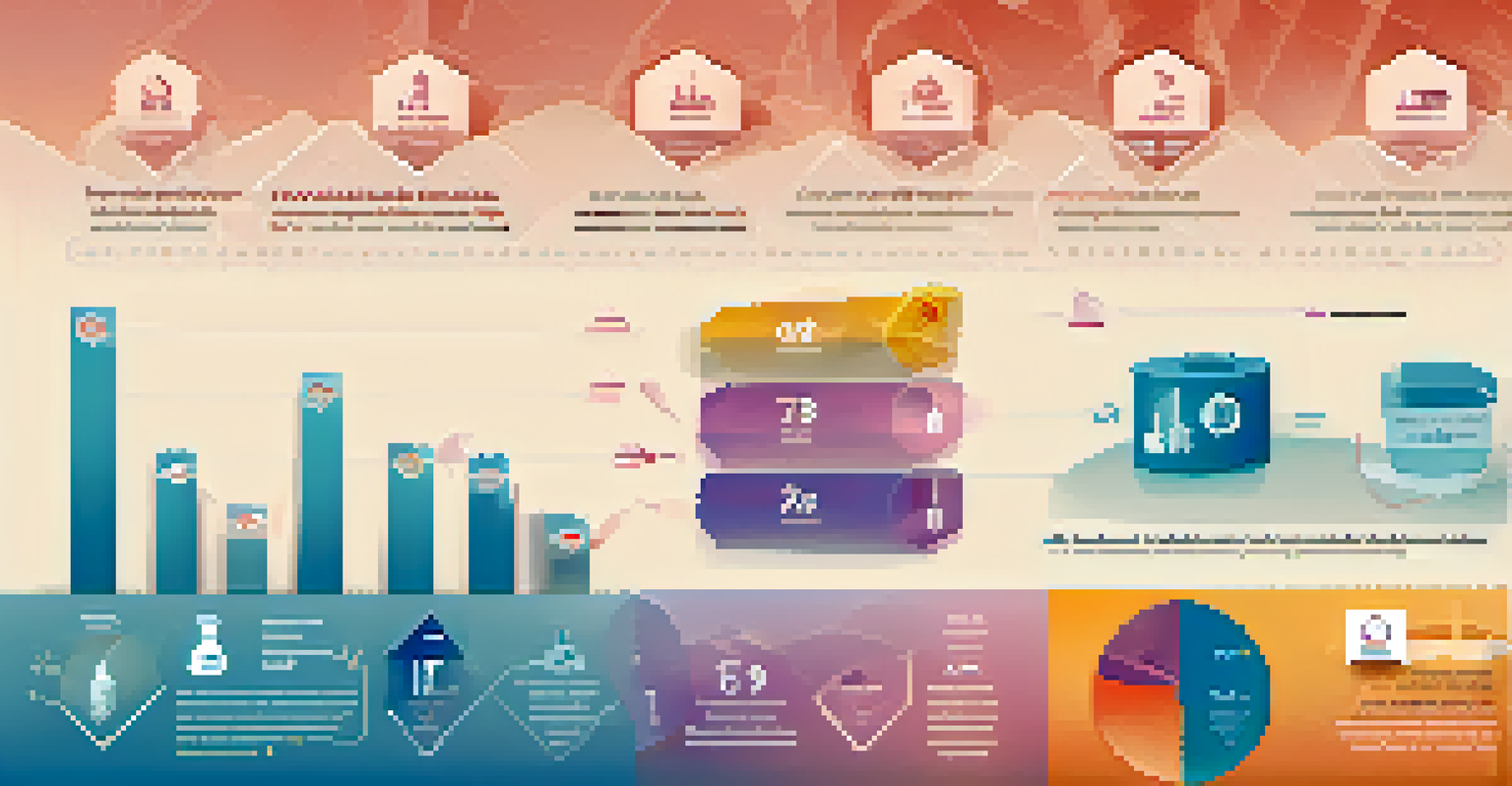Public Health Campaigns: Addressing Substance Abuse Issues

Understanding Substance Abuse and Its Impact
Substance abuse refers to the harmful or hazardous use of psychoactive substances, including alcohol and illicit drugs. It leads to significant health issues, including addiction, mental health disorders, and even death. The ripple effects extend beyond individuals, impacting families, communities, and society as a whole.
Substance abuse is a disease that affects not just the individual, but the entire community. Recovery is a community effort.
Statistics show that substance abuse is a major public health concern, contributing to rising healthcare costs and lost productivity. For instance, the National Institute on Drug Abuse reports billions in economic losses due to substance-related issues. Understanding these impacts is crucial for tailoring effective public health campaigns.
By recognizing the gravity of substance abuse, we can better appreciate the necessity of campaigns designed to combat this issue. These initiatives aim to educate the public, reduce stigma, and promote healthier choices, ultimately fostering a safer and healthier society.
The Role of Public Health Campaigns
Public health campaigns are organized efforts to inform and influence the public regarding health issues. They play a vital role in addressing substance abuse by raising awareness, providing resources, and encouraging behavioral changes. Effective campaigns utilize various media channels to ensure messages reach a wide audience.

For example, campaigns like 'Truth' have successfully targeted youth by using engaging and relatable content to educate about the dangers of smoking. Similarly, public health campaigns addressing substance abuse often incorporate personal stories and real-life experiences to connect with individuals on a deeper level.
Substance Abuse's Widespread Impact
Substance abuse creates significant health issues and affects families and communities, highlighting the need for effective public health campaigns.
The ultimate goal of these campaigns is to shift public perception and encourage healthier habits. By fostering a supportive environment, they can help individuals feel empowered to seek help and make informed choices about their substance use.
Identifying Target Audiences for Campaigns
One key to a successful public health campaign is identifying the target audience. Substance abuse impacts different demographics in unique ways, so understanding these nuances is critical. For instance, campaigns may focus on teenagers, parents, or specific communities most affected by substance use.
The best way to predict the future is to create it.
Tailoring messages to resonate with the target audience is essential. For example, campaigns aimed at teenagers might use social media and influencers to spread awareness, while those targeting adults might focus on workplace education and support. This targeted approach can significantly enhance the campaign's effectiveness.
By addressing the specific needs and concerns of various groups, public health campaigns can create a more profound impact. When audiences feel the message is relevant to their lives, they are more likely to engage and take action.
Utilizing Data-Driven Strategies
Data-driven strategies are essential in shaping effective public health campaigns. By analyzing statistics on substance use trends, campaigns can identify high-risk groups and tailor their messages accordingly. This approach not only helps allocate resources efficiently but also enhances the campaign's overall impact.
For instance, the Centers for Disease Control and Prevention (CDC) often relies on research data to inform their initiatives. Their findings on opioid overdoses have led to targeted campaigns aimed at prevention and education in areas most affected by this crisis.
Target Audiences Enhance Campaigns
Identifying and tailoring messages to specific demographics is crucial for the success of public health campaigns addressing substance abuse.
By continuously monitoring and evaluating data, public health campaigns can adapt and evolve as necessary. This flexibility ensures that the campaigns remain relevant and effective in addressing the ever-changing landscape of substance abuse.
Incorporating Community Engagement
Community engagement is a cornerstone of successful public health campaigns. Involving local stakeholders, such as schools, churches, and community centers, helps create a supportive network that facilitates change. When communities come together, they can amplify the campaign's message and reach a broader audience.
For example, local events and workshops can provide a platform for open discussions about substance abuse. These gatherings not only educate participants but also foster a sense of belonging and support, encouraging individuals to seek help if needed.
By harnessing the power of community, public health campaigns can create lasting change. Engaged communities are more likely to adopt healthier behaviors and support one another in the journey toward recovery.
Measuring Campaign Effectiveness
Evaluating the effectiveness of public health campaigns is crucial for understanding their impact. By measuring outcomes such as changes in behavior, awareness levels, and community engagement, campaign organizers can assess what works and what doesn’t. This information is invaluable for refining future initiatives.
Surveys, focus groups, and other research methods provide insights into the campaign's reach and effectiveness. For example, a campaign might find that participants who attended community workshops reported a higher understanding of substance abuse issues than those who did not.
Data-Driven Strategies for Success
Utilizing data-driven approaches allows public health campaigns to effectively target high-risk groups and adapt to changing trends in substance abuse.
Implementing feedback mechanisms allows campaigns to adapt and improve continually. When campaign organizers listen to the community's response, they can create more effective strategies that resonate with their audience.
Future Directions for Substance Abuse Campaigns
As society evolves, so too must public health campaigns addressing substance abuse. Emerging trends, like the increase in online interactions and the growing influence of social media, present new opportunities for outreach. Campaigns can leverage these platforms to engage younger audiences more effectively.
Additionally, addressing the stigma surrounding substance abuse remains a priority. Future campaigns should focus on fostering empathy and understanding, encouraging open conversations about addiction. This shift can help create an environment where individuals feel safe seeking help without fear of judgment.

By embracing innovation and inclusivity, public health campaigns can continue to make a positive impact. As we look ahead, the goal remains clear: to build a healthier, more informed society free from the grips of substance abuse.